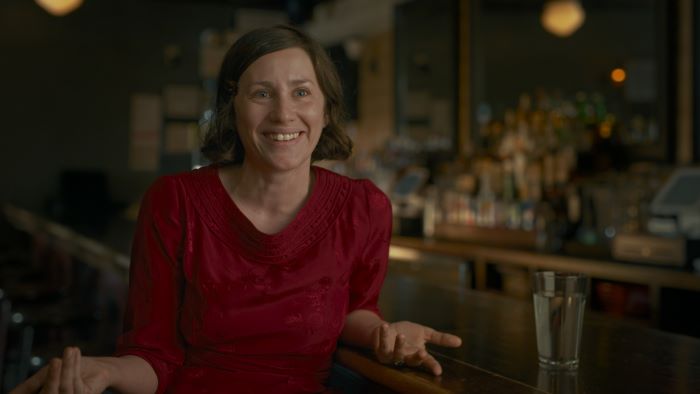The #MeToo movement was a massive outing of the most dangerous, problematic, and downright criminal behavior by some of Hollywood’s elite. Sorry/Not Sorry chronicles the popularity of one of the most popular comedians in recent years, the allegations against him, and how the subsequent consequences, or lack thereof, impacted his career and those he wronged.
The documentary begins by tracing the popularity of Louis C. K. His trademark self-deprecating, seemingly brutally honest, comedy routine was also very personal. The stories he told endeared him to audiences. Directors Cara Mones and Caroline Suh showcase what made him so popular: joking about the uncomfortable truths of his life, no matter how embarrassing or shameful. But there was a darkness behind it, as the film discusses in detail.
Produced by The New York Times, the same publication that first broke the allegations against him in 2017, Sorry/Not Sorry takes an objective look at Louis C. K.’s behavior and how he basically got away with it. And most importantly, how it affected those victimized by him. Jen Kirkman and others speak out against the comedian and share their experiences. The film gives these women a voice to speak their truth and details how speaking up impacted their lives, for better or worse: It’s heartbreaking in moments, while also upsetting. The film will trigger some audiences, given its discussion of sexual acts and actions.
The reason this story is different from others about high profile abusers is that Louis C. K. has admitted to it all. The allegations aren’t alleged. He said they happened. However, only a few months after the story broke, he returned to the limelight, having worked this experience of abusing women into his witty, deprecating, and shamelessly personal comedy routine. For the large part, he has escaped cancel culture. So, the documentary aims to use Louis C. K. in a larger conversation about second chances.
Interviews with famous comedians and creatives in Hollywood discuss their reactions and, for some, even their involvement. While some expressed shock about the accusations, others admitted their complicity through their apathy or indifference. This is in response to a larger commentary on the culture of Hollywood and how those around Louis C. K. enabled the behavior through a willful ignorance. Comedian and writer Megan Koester intentionally left the comedy spotlight after knowing many in the industry were fully aware of his alarming actions but chose to ignore them or actively covered them up to protect him.
While the victims are highlighted, there are also clips and excerpts of those who minimize his actions, comparing them to worse offenders. Even more nuanced takes come from comedians like Michael Ian Black, whose contrary opinions caused a social media backlash, something he addresses here. Noam Dworman, owner of New York’s Comedy Cellar, where Louis C. K. began his comeback, attempts to separate the performer he was hiring from his personal actions, albeit failing to do so convincingly.
The documentary is neither a defense nor a condemnation of Louis C. K. Instead, it invokes conversations about cultural attitudes toward abusers. Is there such a thing as “time served” in the court of public opinion? Or is a person’s worst behavior held against them forever? While the questions are uncomfortable, Mones and Suh keep their bias out of the narrative, while still highlighting in a respectful and considerate manner the women he wronged.
Of the many films focusing on the #MeToo movement, Sorry/Not Sorry feels the most truthful account of the state of Hollywood, complete with the dual nature of its hypocrisy and, at times, virtue signaling.







Leave A Comment